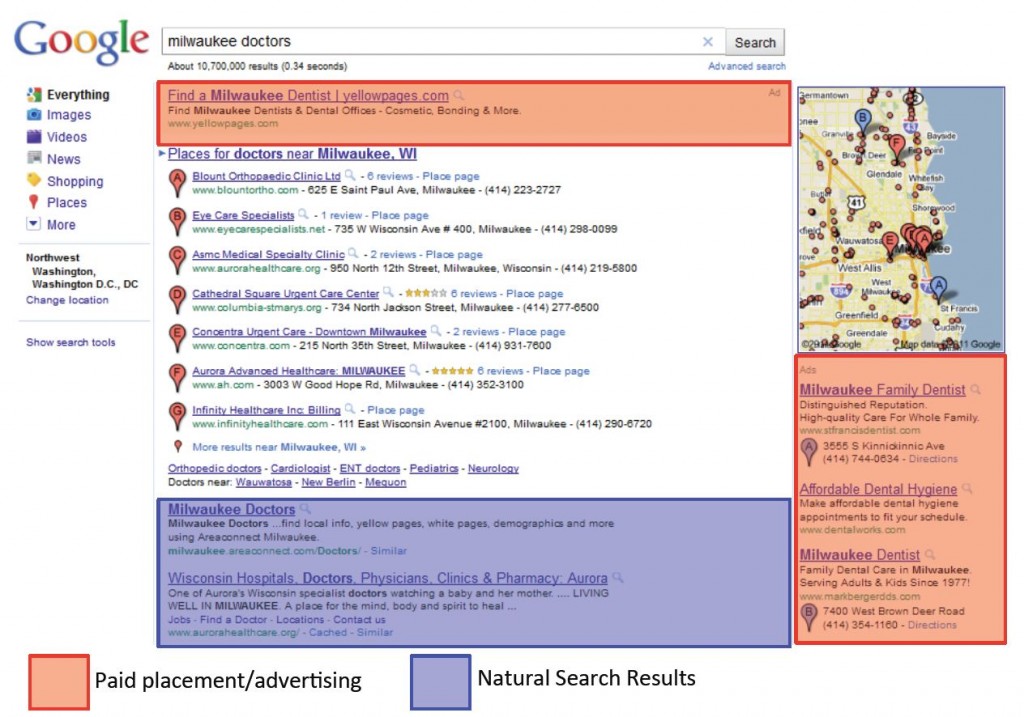Barnett Testifies at the Senate's Power of Google Hearing
Yesterday, the Senate Antitrust Subcommittee held a hearing on “The Power of Google.” Chairman Kohl (D-WI) and Ranking Member Lee (R-UT) invited Tom Barnett, former Assistant Attorney General in the Department of Justice’s Antitrust Division and counsel to Expedia (a FairSearch member), to share his expert testimony regarding Google’s anticompetitive behavior.
Here is the oral testimony that Mr. Barnett conveyed to the Subcommittee:
Thank you, Chairman Kohl. It’s good to see you again. And thank you, ranking Member Lee and senators for holding this important hearing.
I would like to start with a general observation. I was heartened initially by the statement from Chairman Schmidt that Google gets it, but to be frank with you, based on my experience both in the private sector and the government, Google doesn’t get it.
Companies that get it will step up to the plate, admit to reality, and focus on what are the real issues. Google won’t even admit to reality.
Let me tell you what I’m talking about. The first element of a Section 2 monopolization claim: Is Google a dominant company; do they have monopoly power?
I think, as this committee recognizes, undoubtedly, Google has monopoly power in search and paid search advertising.
You don’t have to take my word for it. You all heard it. Both the Department of Justice and Federal Trade Commission have conducted extensive investigations in this area, and both of them, the expert agencies, reached factual determinations that show that Google has a monopoly power.
There’s a federal judge who believes that they are dominant. But don’t take my word for it or their word for it; take the word of Chairman Schmidt. If we could put up the first chart, in 2003, in a moment of candor, Chairman Schmidt acknowledged that managing search at our scale is a very serious barrier to entry.
If you have an 80 percent share of the market with barriers to entry, you have monopoly power. And those barriers don’t come from the supposed cost of switching or clicking to another site. The barriers come from building an effective search engine.
You need the scale, the volume of traffic that Google has to tune the engine, and it’s an ongoing process. Nobody else is going to catch Google, even if you had access to their algorithm today. They have market power.
Second, is that market power expanding? Absolutely, their dominance is expanding, into maps, into video, in finance and product. Mobile is an important area where they’re expanding. I think Senator Franken pointed out 97 percent of searches on a mobile device, 98 percent of paid search advertising served to a mobile device is from Google.
Moreover, their Android operating system, which is on more than 50 percent of every smart phone shipped in the United States today, is rapidly becoming the dominant mobile operating system.
So from a Sherman Act monopolization/monopoly maintenance perspective, is there a problem? Yes, there is a problem if Google is engaging in any improper conduct to maintain or to expand its dominance.
And the question is not, does Google do anything that is good?
Google does lots of things that are good, and they want to point you to that, but what they don’t do is step up to the plate and acknowledge that there are some things that are highly problematic.
If we could put up the second chart, it’s similar to the screenshot that Senator Lee put up there.
Marissa Mayer, in her quote that we’ve talked about, acknowledged that Google places links above the natural search results. The blue are the natural search results. The other — the orange are the paid search ads that are labeled as ads, because they have an economic interest in that.
What’s in the middle? Well, what’s in the middle is not algorithmic. Does Google ever tell the user it’s not algorithmic? Absolutely not. There are multiple links on this page that, when you click on it, will take you to a Google Places page, and on that Google Places page, Google will advertise, and they will earn money.
Google has a direct financial interest in placing that link above the natural search results. And by failing to disclose what they’re doing to users, they can mislead them into going to a site that they think, because we’re all conditioned to think, well, what’s at the top of the page, the algorithm has told us is the most relevant to our queries. It’s not an algorithmic result, and they haven’t disclosed that fact.
In the Android operating system, there’s already indication that they’re using compatibility as a club to force handset manufacturers to do things to help Google and harm competitors.
You will hear further, with respect from Yelp and from Nextag, some of the other conduct that Google is engaged in that I would suggest to you is improper and, to the extent that it has advanced Google’s position in the marketplace, a problem.
Antitrust enforcement can and should play a role. It is, in fact — I agree with Senator Lee — very important that it play a role, because if Google continues to expand and control more and more of the Internet, there will be increasing pressure for more direct government regulation that may be more burdensome, more difficult. The right answer is appropriate antitrust enforcement. Thank you.
Want to read more? Here’s Barnett’s full written testimony, and here’s the full transcript of the hearing.

